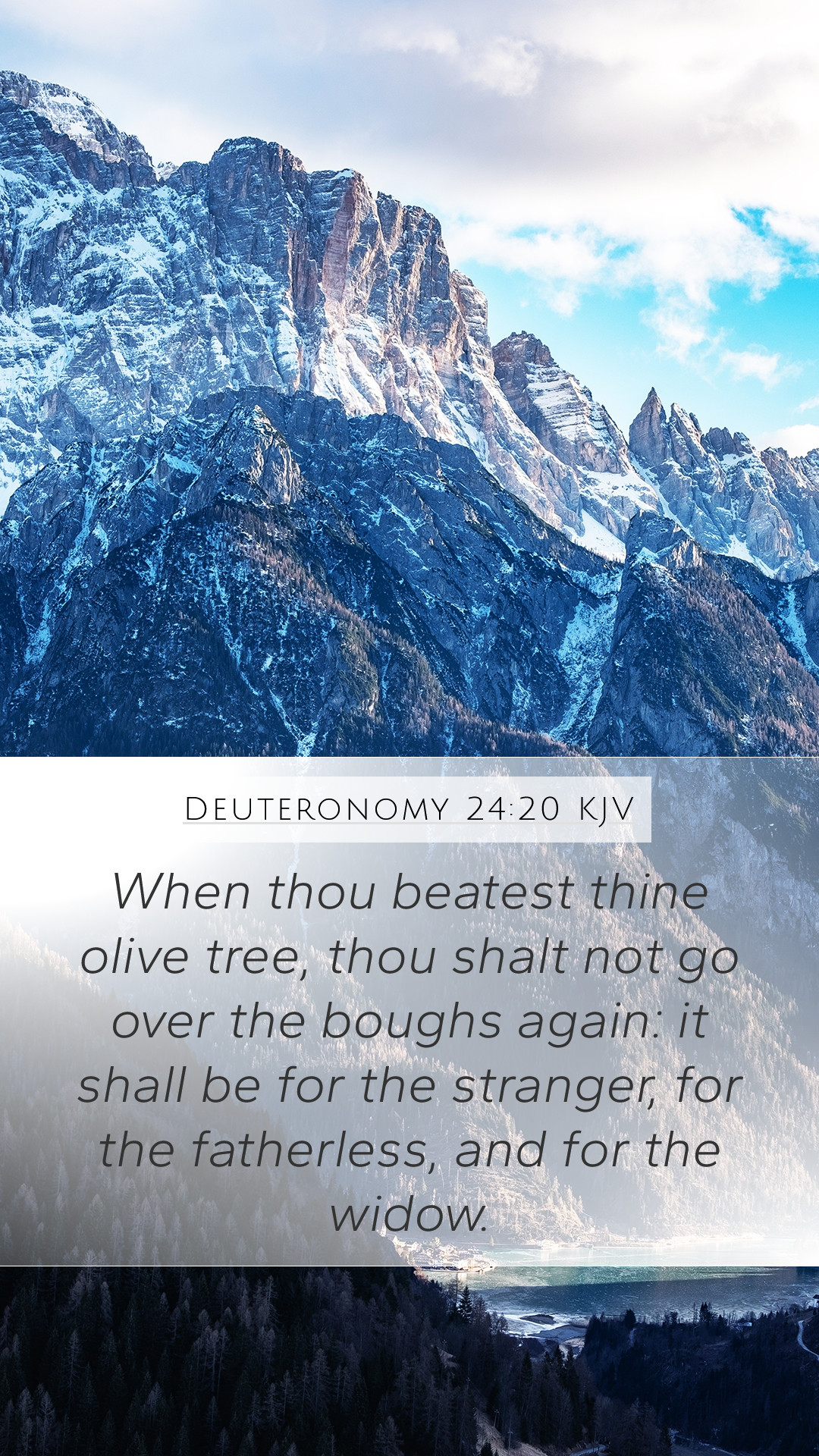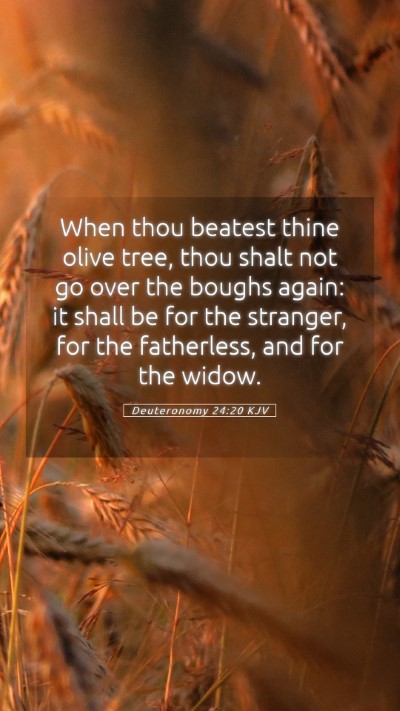Bible Verse Meaning: Deuteronomy 24:20
Verse: "When thou beatest thine olive tree, thou shalt not go over the boughs again: it shall be for the stranger, for the fatherless, and for the widow." (Deuteronomy 24:20)
The verse from Deuteronomy highlights the principles of generosity, justice, and compassion within the framework of agricultural practice in ancient Israel. Here, the focus is on the olive tree, a vital resource, and the instructions given to the harvesters on how to glean the fields. Below, we present insights drawn from prominent public domain commentaries to deepen our understanding of this scripture.
Insights from Public Domain Commentaries
Matthew Henry's Commentary
Matthew Henry emphasizes that God's laws reveal His care for the poor and marginalized. He remarks that when olive pickers gather fruit, they should leave some for those in need—such as strangers, orphans, and widows. This practice is a reflection of God's justice, ensuring that society remains inclusive and compassionate.
Albert Barnes' Notes on the Bible
Albert Barnes provides an interpretation that aligns with the overarching theme of social responsibility. He notes that this instruction not only applies to the olive tree but metaphorically extends to all forms of gathering. The command underscores the importance of not being greedy and leaving enough for those who are less fortunate, creating an economy of grace and sharing.
Adam Clarke's Commentary
Adam Clarke reflects on the historical context of this verse, suggesting that these regulations were practical applications that reflected the moral and ethical codes of the covenant community. Clarke points out that caring for the needy was essential in Israel's society, illustrating God’s provision for those unable to provide for themselves.
Biblical Exegesis and Deeper Understanding
This verse serves as a part of a larger discourse on societal ethics that is prevalent throughout the Torah. The principle behind these guidelines reveals profound biblical themes, including the importance of community support, the ethical treatment of vulnerable populations, and the role of divine law in shaping moral conduct.
Key Themes in Deuteronomy 24:20
- Justice and Generosity: The verse illustrates a direct link between agricultural practices and social justice, highlighting the necessity to consider the poor in economic activities.
- Care for the Vulnerable: Specific mention of the stranger, fatherless, and widow reinforces their significance in the community and suggests a divine priority on their welfare.
- Economic Ethics: This guidance cultivates a sense of responsibility among harvesters, urging them to share the blessings of their labor with those in need.
Applying Deuteronomy 24:20 to Daily Life
This verse prompts reflection on how we can embody its teachings in our lives today. Practical applications may include:
- Engaging in charitable acts, ensuring that our resources bless others in our community.
- Being conscious of how our choices affect marginalized groups and actively seeking to support them.
- Participating in community service or advocacy work focused on helping those in need.
Cross References
This verse is relevant to several other scriptural passages that echo its themes:
- Leviticus 19:9-10: Instructions on leaving the corners of fields for the poor.
- James 1:27: A call to care for orphans and widows.
- Proverbs 14:31: Kindness to the needy is seen as honoring God.
Conclusion
Understanding Deuteronomy 24:20 requires a comprehensive analysis of its societal implications, historical context, and ethical teachings. As believers engage with this text, they are invited to reflect on their own practices of generosity, justice, and community support, fostering a culture where the needs of the vulnerable are recognized and met.


